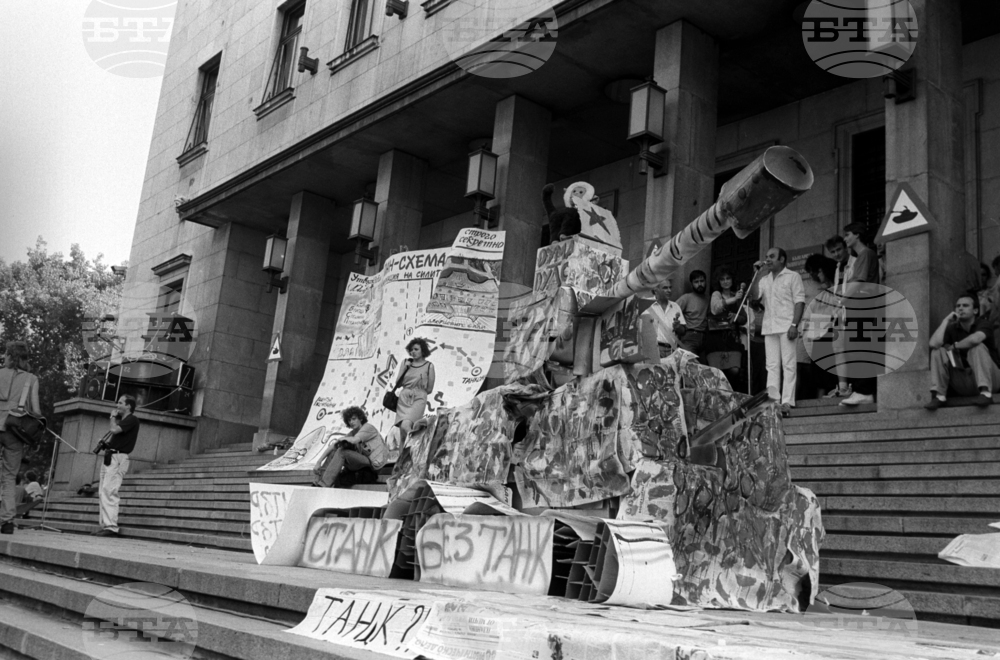site.btaBulgarian President Mladenov Resigned in 1990 After Union of Democratic Forces Video Exposed Call for Tanks


Thirty-five years ago, on July 6, 1990, Petar Mladenov resigned as president of the People’s Republic of Bulgaria. His resignation followed a wave of public protests and the broadcast of a Union of Democratic Forces (UDF) campaign video, in which he was heard suggesting that the intervention of tanks might be necessary to restore order amid anti-government demonstrations—a remark widely interpreted as a call for military force against civilians, and one which provoked significant public outrage and triggered demands for his departure.
In the weeks leading up to Mladenov’s resignation, opposition groups and student protesters demanded political change and openly challenged the government. The controversy began when the UDF refused to hand over original video and audio recordings and related equipment to the National Investigative Service, after footage of Mladenov’s comment had aired in a UDF campaign broadcast on June 14, 1990, ahead of the second round of elections for the Great National Assembly. The authorities insisted on obtaining unedited material to verify its authenticity, while the UDF’s coordinating council responded by providing copies and requesting that any technical examination involve international experts along with UDF representatives.
Tensions escalated further at a press conference organized by student strike committees and NGOs for free elections, where government officials, politicians, and journalists gathered at Sofia University St. Kliment Ohridski. Technical challenges delayed the live broadcast, but the discussion was particularly tense when Interior Minister Atanas Semerdzhiev addressed the crowd. He rejected allegations that police were preparing to use force against demonstrators and promised the government would try to satisfy most student demands, as long as these were lawful. Semerdzhiev also pledged to publish the results of any examination into the authenticity of the broadcast material as soon as the relevant technical commission completed its work.
Within academic circles, support for the protests grew. University lecturers sympathetic to the students warned they would begin an open-ended sit-in if the core demands were not met promptly, while staff at the Medical Academy in Sofia began wearing badges in support of the students. At the same time, media editor Aleksandar Yordanov and Evgeni Mihaylov, author of the contested video, both defended the integrity of the broadcast, insisting the footage had not been falsified and calling for an honest response from the country’s leadership.
Soon after, a panel of experts from various fields confirmed the tape’s authenticity, rejecting any suggestion of manipulation. Pressure on the presidency intensified as demonstrators, faculty, artists, and parents organized sit-in protests outside the president’s offices, repeatedly calling for Mladenov’s resignation.
As a final attempt to address the situation, Mladenov delivered a televised address to the nation, cautioning that society was on the verge of instability and denying any intent to incite violence. He insisted the controversial phrase had been taken out of context and did not reflect his views on democracy or his entire political record. Nevertheless, feeling that the ongoing protests and the widespread demand for accountability were threatening fledgling democratic reforms, Mladenov sent his resignation to the Great National Assembly, citing the nation’s best interests.
His decision was met with celebration among the striking students at Sofia University and across the country, widely seen as delivering the protestors' last and most important demand and marking a turning point in Bulgaria’s transition to democracy.
/KT/
news.modal.header
news.modal.text